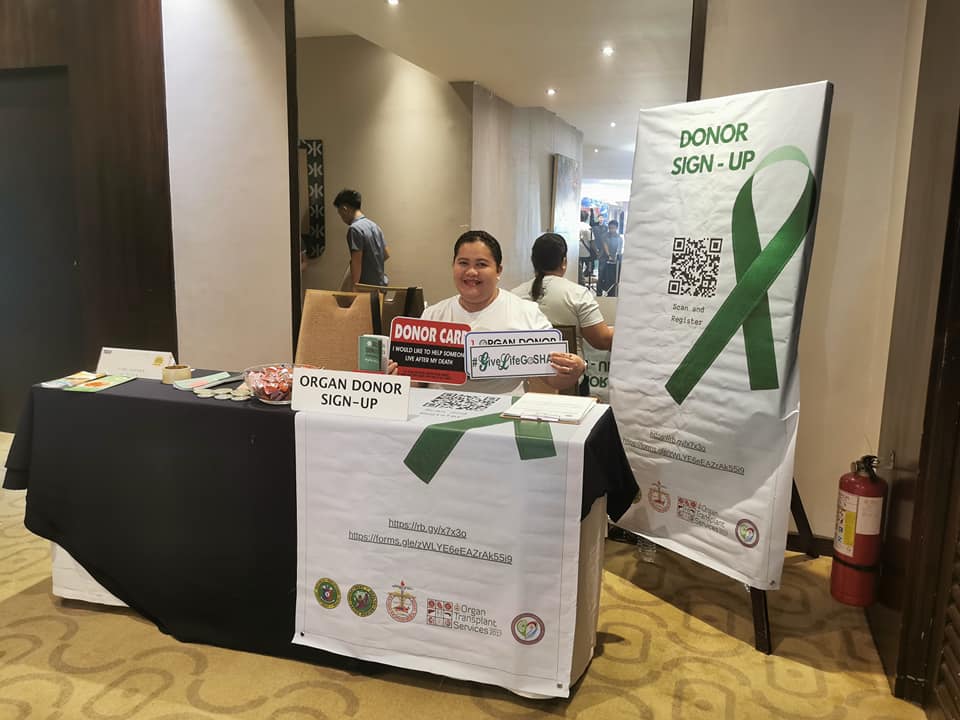A NEPHROLOGIST at the Southern Philippines Medical Center (SPMC) said they need more Davaoeños to donate organs to address the lack of organ donations in the city.
Dr. Maria Theresa Bad-ang, SPMC-Human Advocate and Retrieval Effort (SHARE) head nephrologist, recognized that family members are still reluctant to donate the organs of patients with irreversible loss of brain function.
“Dili mali ang mag-donate, gina promote gyud nato. Kung naa mo’y amigo, naa moy kaila, kung naa moy loved ones, suportahan [nato] sila sa organ donation,” Bad-ang said during Kapehan sa Dabaw on Oct 23.
Family members must not hesitate as donating the organs of their patients who are declared brain-dead is legal.
Every year, kidney disease patients who undergo dialysis in the region increase by 10% with 100 new patients every month. Presently, there are about 500 patients in SPMC and 2,400 in the region.
Bad-ang said while the hospital has high-technology equipment for dialysis, and PhilHealth offers 156 free sessions, it can never be enough. Transplantation is still the best treatment compared to undergoing dialysis
“Dili nga sige nalang nato sila og sustentohan sa dialysis, dapat tanggalon gyud sila sa dialysis so they can be productive member in the society,” Bad-ang said.
“We have to stop them from going to dialysis by prevention, at the same time kadtong naga- dialysis hatagan nato syag option for transplant,” she added.
She stressed that the country needs more donors as she recalled that patients waiting for five years on the waitlist, unfortunately, pass away before getting a donor.
Bad-ang noted there are 120 who are enlisted on the current waitlist at the National Kidney and Transplant Institute. For instance, if a patient doesn’t have a living family member who can donate organs for them, they will be enlisted in the national waitlist to be prioritized once donors are available.
“Ang among gina-lobby na karon ay ang family nga tabangan nga makasabot sila nga ang ilahang paghatag sa mga organ sa ilang namatay is legal. It is their responsibility and it can help others nga nagahulat sa waiting list,” Bad-ang said.
She advised that the willing donors must look after their kidneys and health to ensure they are not diabetic or hypertensive and their kidneys are functional in order to protect the recipients. The ethics committee assesses the donors’ willingness, to make sure they are not threatened or paid. For instance, the consent of family members is sought for brain-dead patients.
As of 2012 records, Bad-ang said there are 120 living donors and eight deceased donors in the hospital. The SPMC continues to monitor living donors, to ensure their health is taken care of.
She said they need at least 20 donors yearly based on the population ratio but they recorded no kidney donor, and only one eye donor, so far this year.
SPMC intensifies its awareness drive to address the lack of donors in the city along with campaigns against “organs for sale” through continued orientations on kidney transplants scheduled monthly at the SPMC JICA Building.
Photo courtesy of SPMC Organ Transplant Services Unit




